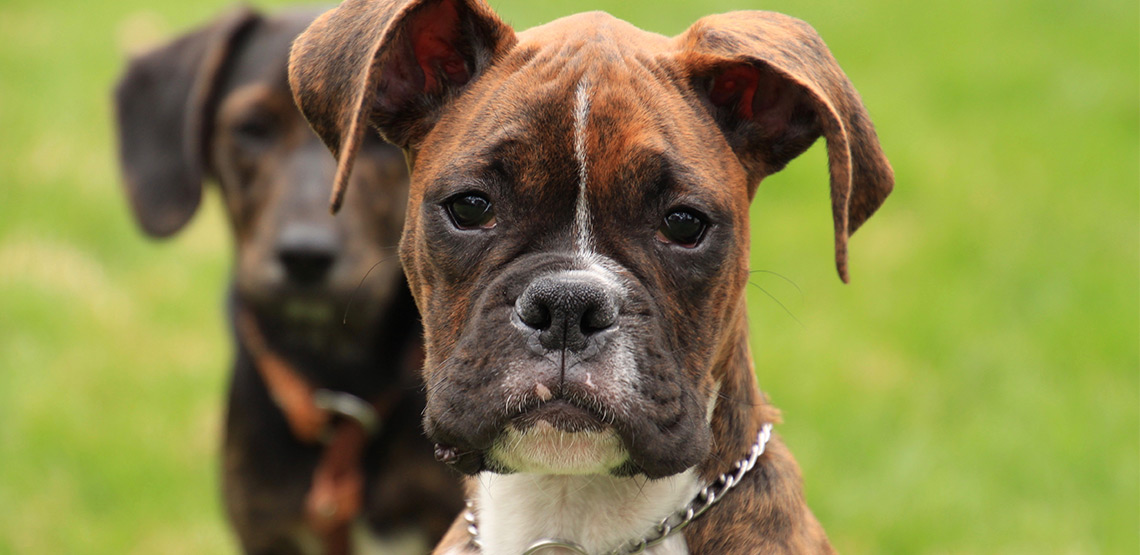A Complete Guide to Boxer Dogs
The boxer is a strong, agile dog breed that originated in Germany. Though their extremely strong jaws can be intimidating, they're gentle and well-known for their loyalty and intelligence. According to registered ownership statistics, boxers are among the most popular breeds in the United States.
Appearance
Height: An adult male averages 22 to 25 inches in height at the withers; females average 21 to 23.5 inches in height.
Weight: Adults should weigh between 50 and 75 pounds.
Coat: The boxer has a smooth, short-haired, shiny coat. Brindle, red and fawn are the most common primary coat colors. White underbellies are common.
Ears and Eyes: Many boxer dog owners crop their pets' ears, though animal rights societies consider uncropped ears more humane. This breed's eyes are normally brown and display a high degree of alertness and intelligence.
Tail: Many boxer puppies for sale through breeders already have docked tails. Docked or undocked, the tails on these animals are naturally short.
Disposition
Boxer dogs are patient and gentle with children. This breed generally gets along well with other pets, especially other dogs, and rarely shows aggression when properly raised, trained and socialized.
AKC Group: Working
Related Search Topics (Ads):
Training: This breed is renowned for its headstrong, stubborn disposition and generally won't respond well to retraining once it has matured. Dominant owners who start training boxer puppies early and use a positive reinforcement strategy generally enjoy the best results. Boxer breeders emphasize the versatility of these dogs, which can be trained to search, rescue, guard and lead the blind.
Ideal Environment: Because of their high energy levels, boxers are best suited to homes with adequate outdoor space. However, if socialized properly, a boxer puppy can grow up to be quite comfortable in apartment-style settings. They thrive in warmer climates since their short coats don't keep them very warm during cold winters.
Health and Care
Feeding: Boxers have sensitive stomachs. Feed them a high-protein diet of quality dog food.
Grooming: Because their coats are short, boxer dogs require minimal grooming.
Exercise: It's essential for boxer dogs to get daily exercise, since they tend to engage in destructive behaviors like chewing and gnawing if they're bored or underworked.
Health Problems: While all dogs display breed-specific health concerns, boxers are particularly susceptible to digestive tract troubles, heart problems, hypothyroidism, canine cancer, bloating and hip dysplasia.
Average Lifespan: Boxers have shorter life expectancies than smaller breeds like the chihuahua. Expect a healthy dog to live about 10 to 12 years.
Finding Boxer Puppies for Sale
Boxer breeders are an excellent resource if you're looking for boxer puppies that have proven parentage. A boxer puppy from a reputable dog breeder generally runs between $700 and $1,100.
Buyers should beware of purchasing dogs from puppy mills, which tend to be significantly cheaper but far less reliable and ethical. These farms pay little attention to the breeding quality and overall health of the puppies they sell, which can translate into big vet bills down the road.
Those who wish to adopt an adult dog can look to boxer rescue organizations. Here, buyers can find trained, fully grown dogs that have been taken out of abusive homes, or strays that have been taken off the street. Both boxer breeders and boxer rescue organizations can be found in most medium- and large-sized communities.
